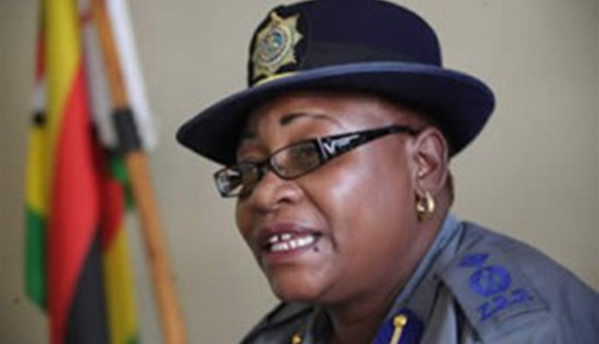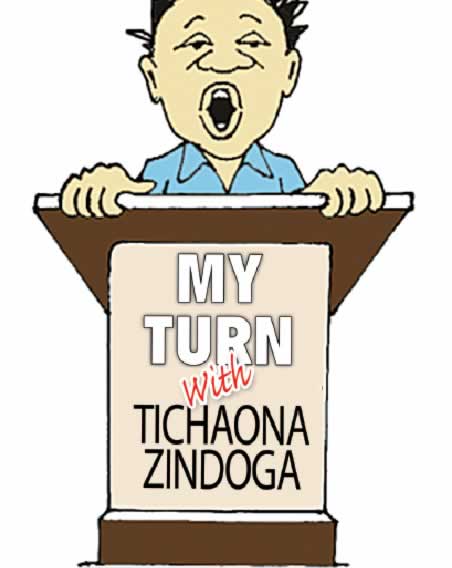Attitude that won’t win ZRP many friends

 Receiving an early morning text after your story is published ranks as one of the nicest things for many journalists — well, usually. It confirms that your story has come out — some stories don’t see the light of day — and that it has elicited some response. So, when last week I received a text from someone after the short interview with Police spokesperson Assistant Commissioner Charity Charamba on the issue of the CBD “war” between police and kombis, I was naturally grateful for the feedback so early in the morning.
Receiving an early morning text after your story is published ranks as one of the nicest things for many journalists — well, usually. It confirms that your story has come out — some stories don’t see the light of day — and that it has elicited some response. So, when last week I received a text from someone after the short interview with Police spokesperson Assistant Commissioner Charity Charamba on the issue of the CBD “war” between police and kombis, I was naturally grateful for the feedback so early in the morning.
But my interlocutor was unhappy with the way that my interviewee had acquitted herself, especially in light of the emotive issues that were raised by the interviewer.
He thought she was arrogant and there was no sincerity in her brevity.
(Let it be pointed out that another question that I had sent, regarding the pervasive smashing of car windows by police, went unanswered whether by omission or commission by my interviewee.)
As it turned out, the non-salutary assessment of the interview was predominant in the feedback on the online platform of this paper.
Many respondents were not partial to Asst Comm Charamba.
A reader identified as Mauruka was the first to respond with: “The responses by the officer Charamba are blatantly arrogant. It seems she does not appreciate the importance of the subject under review. And she choses (sic) to be in a war of words with the reporter at the expense of genuinely legitimate questions which had been put to her.”
Hurungudo quipped: “I agree with you. It’s sickening to learn that this is the highest office in ZRP’s public relations who respond so blatantly arrogant. To Commissioner Charamba or whatever your rank is, we do not need you in our police force. You have no tact, no skills, no idea what goes on around you. You are simply USELESS!”
One Goridhe remarked: “Wow this lady is so so pompous. Ah! maiwe zvangu. This is some heartless, reckless responses I have ever seen. This woman does not belong where she is . . . . period. Sickening.”
Tate said: “The situation is not helped by a leadership in denial. Chete haisi mhosva yavo, hapana chavanoziva, kupi kwacho kwavakambofamba mutown vakapotsa vatsikwa? They can’t relate if they work at Police HQ — Seventh & Chinamano and live in Borrowdale, mutown havamuzive.”
So went the conversation.
The public delivered its verdict.
The point here is not to malign a particular person — the person of Asst Comm Charamba — no.
However, the police must gauge the responses of the people they always say must help them to stop crime to ascertain the level of their acceptability.
You do not win many friends by being arrogant — or being perceived to be so — when your office is one that deals with public relations.
Spokespersons are not stop-persons of sorts who would rather people not talk about certain issues and concerns.
People, and journalists that are their mirrors, hold opinions and if they are wrong they must be engaged professionally and not as some kind of outlaws or species of naughty child.
Haranguing journalists and developing a rather uncomplimentary reputation will not help the image of police, especially at a time the institution must be consolidating its acceptability after being maligned by some political forces for so long. People, and especially journalists, must not be afraid of police not least because, generally, Zimbabweans are law abiding citizens.
Which brings us to the fiasco of the World Press Freedom Day march.
Who would disagree with Professor Moyo’s incisive comments on the banning of a march by journalists for an international observance?
He bemoaned the “opaque reasons” given to halt proceedings in a move that was “manifestly neither in the public nor national interest not least because it is patently unconstitutional and without any transparent, rational or constructive justification.”
Now if reasons given by a particular office to the one that deals with media and information turn out to be “opaque” even to a whole professor, what does that tell us about the nature and capacity of the former?
And how will “members of the public”, as the police want to refer to us, fare in their relationship and understanding of how the police work?
It must be admitted though that the problem is not ZRP’s alone.
It is a deep-seated problem within the bureaucracy of Government, informed in part by the politics and our past, let’s say our revolutionary past.
For journalists, it is difficult to get information from certain offices, even when such information is in the interest of the nation and does not threaten national security. The attitude by some officials is not only contemptuous but also retrogressive in the belief that information — public information — ought not to be released for the consumption of the very people on whose account it is supposedly held. They become some unwilling oracles. And we may not do anything about it.
Thus begins the story of impunity and unaccountability. Some people become a law unto themselves who believe that because of certain credentials they are untouchable. This is sad and neither acceptable nor desirable in a democratic society which is anchored on accountability and exchange of information.
Authorities must disabuse themselves of seeing enemies everywhere when there are none, really. Sometimes they are their own worst enemies.
Providing relevant, timely and well packaged information should be the duty of every public figure and office.
It is in their best interest, too.
Even politically, the most media-friendly parties have reaped huge gains from approachability and openness.
Those who are not savvy find themselves caught off guard and fighting all manner of unnecessary fires.
It is the price of being caught in a time warp in this information age.
It will be useful at this point to call on Professor Moyo’s advice to authorities, in the police and elsewhere: “ . . . that the knee-jerk propensity to always and everywhere use or show force for its own sake is not revolutionary by any stretch of the imagination . . . While the use or show of force may be intended to instil fear or to display power, there’s more than enough experience to show that the unintended consequence of methods that gratuitously seek to instil fear or to display force can be very serious contempt. In any case, there’s no virtue or gain in fear.”









Comments